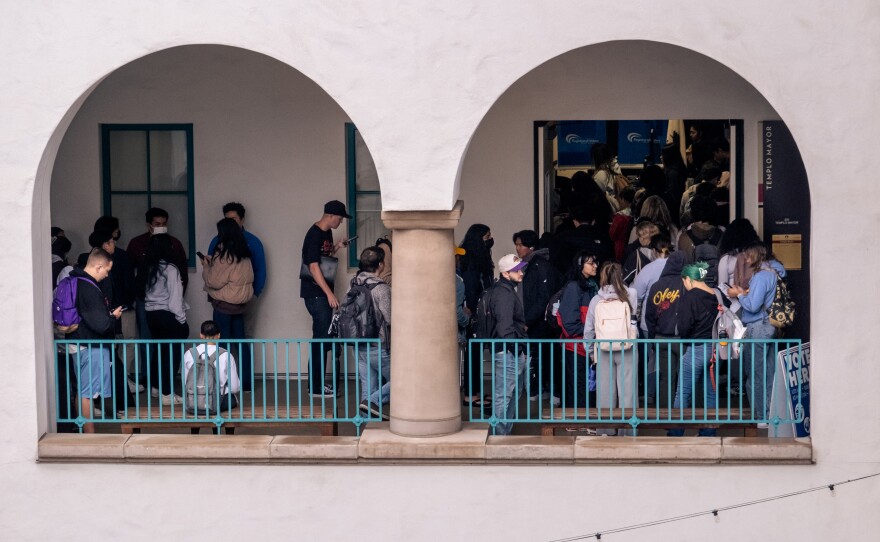Last year, the federal government unveiled a new Free Application for Federal Student Aid, or FAFSA. The rollout was riddled with delays and technical problems.
This year, academic counselors are hearing about another concern: students from mixed-status families — for example, U.S. citizens with at least one parent without a social security number — worry about sharing information with the federal government.
“A lot of families are hesitant,” said Mitzi Salgado, founder of the Transfronterizo Institute in San Ysidro. “‘Should I even submit my FAFSA? Will that be affecting my immigration status?’”
Without the FAFSA, students can’t access federal aid programs like Pell Grants or federal student loans. The application asks students and their parents or spouses whether they have a social security number.
“Historically, that information has been housed in the U.S. Department of Education and has not been shared with any federal agencies,” said Mariana Gomez, director of counseling for the San Diego Unified School District. “I think one of the worries right now, with the current administration, is students are worried that their information may not be safe.”
The National College Attainment Network recommends that mixed-status families “make a considered decision” about whether to submit identifying information in a FAFSA, especially if they’re applying for the first time.
“NCAN believes in the transformative power of education and the incredible potential of these students who are U.S. citizens and fully entitled to federal student aid,” they wrote in a statement. “It is dreadful that students and families have been put in a position of potentially choosing between their safety and the pursuit of postsecondary education.”
In San Diego, counselors are reminding students about other ways to get help paying for college in California.
The California Dream Act Application is for state aid, like Cal Grants, and aid from schools within the state. It’s open to students without legal status, Deferred Action for Childhood Arrivals program recipients and students with Temporary Protected Status. The data isn’t shared with the federal government.
This year, the California Student Aid Commission says mixed-status families can complete the CADAA.
It’s important for students to fill out one of the aid applications soon so they know how affordable college could be, said Linda Doughty, who directs the San Diego and Imperial Counties chapter of the California Student Opportunity and Access Program, or Cal-SOAP.
“If you have an idea that this is what your financial aid picture looks like, then as you’re getting acceptances into your colleges and universities, you can sit down and have conversations with parents about what’s affordable for our family,” she said.
Cal-SOAP is hosting workshops at 24 schools and libraries on Saturday, Jan. 25 in San Diego and Imperial Counties. Students and families can get help filling out both the FAFSA and the CADAA.
Gomez said she wants mixed-status families to know that there are resources available to support them.
“Many of our students have been working hard for this moment right now, their senior year,” Gomez said. “This is something that they've been working on that is about them reaching their goals and their dreams. Because of that, we want to make sure our students have all the information they need to be able to make a decision. “
A list of locations and what to bring to Cal-SOAP’s workshops is available online.







